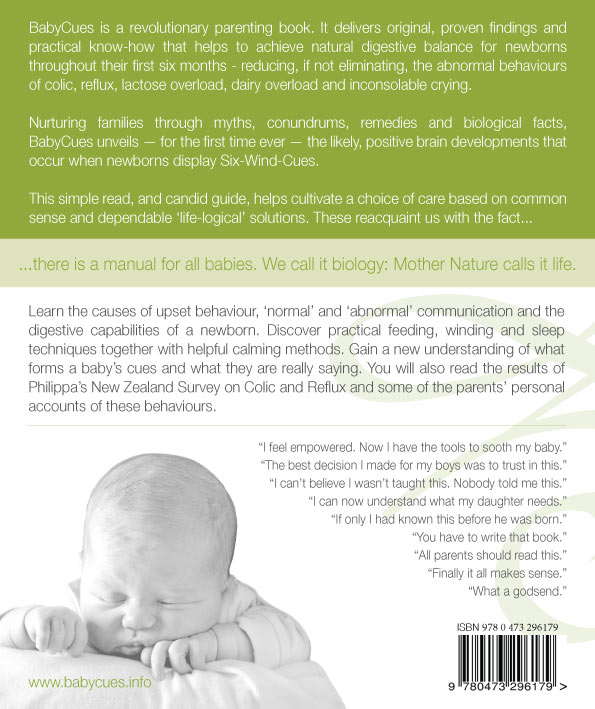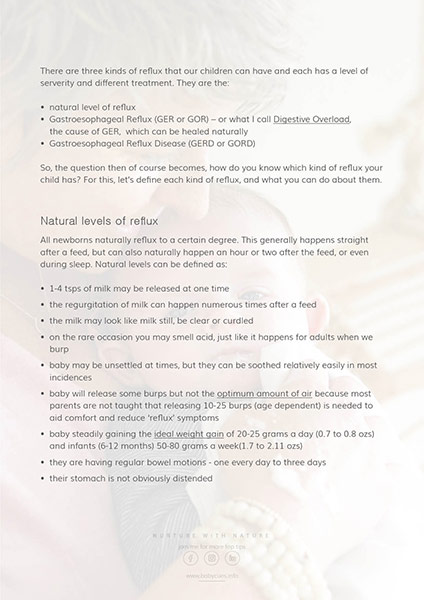The witching hour - it is NOT normal

When we google ‘the witching hour for babies’ this comes up…‘Newborn babies often cluster feed in the evenings, and this means you may spend hours in an on-again-off-again rut. It can be a frustrating time, but it's normal.’
‘Rut’ doesn’t that sound pleasurable, alas that is how it can get ? But more to the point within that statement are the words, ‘but it’s normal.’ Is it? Who said its normal? Whomever they were didn't base their statement on a newborns cues or their digestive biology, because if they did they would know that the baby wasn't asking to continuously feed in the late afternoon to evening and that cluster feeding actually pushes a newborns digestive system beyond what it can cope with. They would also know that this practice of cluster feeding contributes to the witching hour.
When I first started working with babies, 20 odd years ago, the ‘witching hour’ was something that we professionals tried hard to fix for the newborns we cared for because it was widely accepted and known that ‘it wasn’t normal.’ That there was something that wasn’t quite right that needed to be fixed to help the baby. However most baby’s that were upset in the evening back then were largely labelled as having ‘colic’, and we were taught that there was nothing you could do about colic. That parents just had to ‘get through that time and it will come right. That we could give them some band-aid things that may help but that was it.
This widely spread message had many mothers, as it still does now, sadly wishing away their baby’s first three months of life until apparently they would ‘grow out of it.’ Slowly over the last twenty years, as the witching hour has become more prevalent from some of the mis-teachings that parents are being taught, I have watched the knowing that this behaviour is abnormal, morph into 'it is normal' in order to help parents feel better about going through it. As one women said, 'to let them know that it isn't serious' but I beg to differ with her. This kind of behaviour is serious, both to the mental and physical health of the baby, parents and the entire family. That's why it is fantastic to find a new way that helps and is based on factual biolog
Another sentence that was common, and still is, is that the unsettled behaviour is due to an immature digestive system. Hmmmm – immature? I've always found that phrase interesting to say the least. I’ve never felt comfortable with the regurgitated belief that babies were born lacking - how did we ever get to that thought process! It’s beyond me and on behalf of the newborns, it saddens me greatly. Surely they are born with what they are born with in regards to biology, and while we may consider their digestive system immature compared to an adults, that doesn’t make it wrong for the baby at their stage of life. If it was, surely nature would have made us all differently don’t you think?
So with this in mind, and after seeing far too many newborns suffer through this so called thing we couldn’t do anything about, (now referred to as the 'witching hour and normal) with the help of two doctors I studied a newborns early digestive biology, and found that some of what is taught about how to feed, whether breast or bottle, actually works against our baby’s early digestive system. I then got to thinking that perhaps it’s not that it’s immature. Perhaps the unsettled behaviour is more about us not working alongside what nature gifts our baby's in the early months of life. That we weren't placing our feet in theirs enough.
Get the help you need
Hailed as a game changer, life-saver and a must read from parents and postnatal professionals, this self-help book truly has the answers that NATURALLY prevent and heal the symptoms of colic, reflux, silent reflux, the witching hour and lactose and dairy overload - aka Digestive Overload, the true cause of these symptoms.


- nurture your child's digestive system
- Burp your baby to comfort
- Understand their Six-Wind-Cues
- Calm baby with techniques that work


LEARN HOW TO
- nurture your child's digestive system
- Burp your baby to comfort
- Understand their Six-Wind-Cues
- Calm baby with techniques that work
Along with this thinking, in my early career as a Maternity Nurse I discovered what I now call the Six-Wind-Cues. Unfortunately, one of the Six-Wind-Cues is currently being misinterpreted and taught as hunger a cue – the mouth making a chewing motion while poking out the tongue. The rooting to suck reflex is another cue that is mistaught, with parents largely learning it is only a hunger cue. When in actual fact a baby roots to suck for comfort too as sucking relaxes them, ‘turning on’ the digestive system enabling it to work advantageously. Unfortunately, the misunderstanding of these cues leaves the well intentioned parent responding to their unsettled baby with more food, often referred to as cluster feeding.
This only exacerbates the cycle of the ‘witching hour’ because it overloads their digestive system, placing unnecessary pressure on their digestive organs to perform tasks that are abnormal. When this happens, the parents may not be able to place the baby down, let alone lie them down long enough for them to sleep. The baby looks to suck a lot for comfort, they cry and in some cases scream, while arching backwards with possible reflux. To give this behaviour a name that is actually about its cause and replaces 'the witching hour', a baby like this is actually feeling Digestive Overload.
I'd also like to briefly mention, that trapped wind in a baby's body also contributes greatly to Digestive Overload (the witching hour). Most parents are taught to burp baby a few times and that's all they need. But after learning winding techniques hands on with over 35 sets of twins working 24 hours a day for up to 3 months with each family for six years, I can assure you that your baby needs more than just a couple of burps to feel relaxed enough to gain developmental sleep - you can learn about my ten-step method of burp here if you'd like.

Now you may be thinking, but what about growth spurts? The baby needs to go to the breast more often for growth spurts and that's why they get upset and need to cluster feed. This is actually another unhelpful myth. I can hear some of you gasping. Yes babies have growth spurts, but that doesn’t mean you have to feed them more often. Doing so only causes them discomfort (when fed before 3 ½ hours, see below). Instead, if the latch is correct and your baby sucks well, they will just stay on a little longer for feeds when they need more, or suck harder when you feed in accordance to the digestive biology (see below).
You may not even notice the extra time as it won’t be long for some, or the change in suck. This will allow them to demand more supply and over the next 24 to 48 hours your supply will generally respond. Does your baby cry because they are feeling a little hungrier during these times - yes, probably but this is normal. If they didn't feel hungry they wouldn't demand more at the times you do fed them and feeling hungry is a natural occurrence - for a baby it actually helps them to progress their sucking strength which can maintain breastfeeding longer. If they are being fed too often, cluster feeding, they often become lazy as they don't have to work for milk and this may actually cause the mother to give up breastfeeding sooner, especially since the nipples can become rather sore when baby is put to the breast often. I personally see a lot of this happening in clinic with baby's that have been overfed in the early days. By working alongside their natural digestive biology and their natural reflexes of sucking from birth it is quite possible that the breastfeeding rates could go up, and all without parents wishing away the first three months and our baby's feeling starved, or in pain.
For those of you that are worried about having lower milk supply in the evening because you are tired by the end of the day and therefore you need to feed more often. Dr Peter Hartmann, a breastfeeding researcher at the University of Western Australia1, has said that in the women he has studied, milk volume is not low at this time of day. Even if milk volume is lower in the evening, fat content is typically higher at that time. I would agree with Dr Hartmann re women's milk not being lower. The only time I see this with my breastfeeding mothers is if there is a breastfeeding issue e.g. baby has a lazy latch so other feeds throughout the day are compromised, or they have a tongue or lip tie, or mum's hormones have her only able to produce a certain amount of milk, which can happen. It happened to me.
As for the information about the fourth trimester being a huge transitional time, absolutely it is and I totally agree! Infact, I write a little about this in my book, about placing our feet in theirs. Our babies have to adapt to a whole new world and it's important to have them close to us, to respond to their needs in each moment as they unfurl into this world. It is natural too that some of the things in this world have them crying, this includes their digestive tract learning to digest a new food like never before.
In the early months crying for five or ten minutes at a time is normal, but crying continuously for half an hour or longer while exhibiting obvious pain, pedaling legs, arching backwards while looking to suck a lot, this is not normal. This is a baby in pain and my work proves it is avoidable pain. As one mother said to me once, 'if I was crying for that long showing that I was in obvious pain I would be in hospital. Instead we get told it's normal. Where's the logic in that.' Here, here I say.
The fourth trimester is about our baby's needing time to adjust, which is of course normal, but the communication of the witching hour, that isn't normal. Yes, your baby's asking to be close to you, but they do that because they are in pain, and they are in pain because we haven't quite understood their whole picture yet, and what I teach is another piece of their puzzle.
Digestive facts that cluster feeding does not respectfully nurture…
- A newborns stomach does not stretch,, and it is obviously only so big so cluster feeding has a baby taking in more than the stomach can hold, which can cause discomfort and reflux symptoms as the milk obviously only has two ways to go.
- For newborns aged one to three months it has been reported to take, on average, eight-and-a-half hours for milk to travel from the mouth through the digestive tract and onto a bowel motion (known as transit time).2 On average it can take four to five hours for milk to move from the stomach in a healthy manner, meaning with all the nutrients broken down appropriately (not that you would leave your baby without a feed for 5 hours in the first 3-4 months of life). So, this biological fact alone tells us that the taught breastfeeding belief that you have to feed a baby often because they have small stomachs, can’t actually be based on biology.
- Add to this that according to research "gastric (stomach) emptying and transit times are naturally delayed for neonates."3 Furthermore, "initial digestion within the stomach is especially important for milk fat because milk fat droplets are not a good substance for pancreatic lipase, consequently high fat concentration in gastric contents delays gastric emptying."4
- Findings from a study on the 'Development of bowel habit in preterm infants' suggests that the more feeds a newborn has, the more stools they have. This study says that "milk feeds override the intrinsic, fasting, motor activity of the colon, and induce regular defecation at a frequency determined directly by the volume of the products of digestion that reach the rectum." Again, I see this in my own clinical research. Whenever I nurture a baby back to biological levels of feeding, their bowels are reduced to one or two a day, they aren't as explosive, they are not yellow/mustard in colour but more golden/brown, and they don't have seed like deposits in them, which I believe are caused by the abnormal process of undigested fat globules.
The three types of reflux
Unravel the confusion around reflux. Define your child's symptoms and learn the overview of treatment that could be best for them.


- Define reflux
- Symptoms for each kind of reflux
- Overview of treatment


WHAT'S INSIDE
- Define reflux
- Symptoms for each kind of reflux
- Overview of treatment
In other words, when we feed a baby within 3½ hours (cluster feed), we automatically push the food that is already in the stomach onward to the duodenum and onto the large bowel before the stomach enzymes and acid have processed the milk fully. This places other organs under unnecessary pressure as they struggle with unnatural processes. For example: fat globules moving through the intestines or lactose in the duodenum which ferments and causes more gas. When this is done on a continual basis throughout the day, along with baby not burping enough for their age, the baby finally reaches late afternoon to evening feeling highly uncomfortable - the 'witching hour.' This then has them looking to suck for comfort. Sometimes furiously searching, but as I said earlier, this is all too often read and taught as a hunger cue, so mum understandably feeds while unknowingly contributing to the witching hour behaviours.
There was also a recent New Zealand study by Professor Barry Taylor that suggests 'child obesity can be tackled by simple sleep interventions'6. By nurturing a baby alongside their biology, they gain more developmental sleep. I helped a family in Australia recently where at one stage the wee girl was sleeping for short periods, wasn't putting on good weight but the mother was feeding often. We reduced her feeding, which then reinstated her sleep a little more, because she was no longer overloaded, and she started to put on weight.
To summarise…
After years of clinical research and teaching parents how to nurture alongside their baby’s Six-Wind-Cues, while feeding and winding them in accordance with their factual digestive biology and seeing the positive results of this, I can loudly say that ‘the witching hour is not normal.’
'The witching hour', Digestive Overload can happen at any time of the day but is normally witnessed in the late afternoon to evening. It is formed by a cycle of overfeeding (cluster feeding), unhealthy feeding practices like feeding from both breasts in one sitting which automatically overloads baby with too much lactose or not feeding the bottle appropriately or feeding too much and/or to often when bottle feeding. Other causes that contribute are a breastfeeding mother’s diet and not burping a baby to their optimum level after each feed - this is more than one or two burps. Placing baby straight to sleep after a feed throughout the day also contributes to ‘witching hour’ behaviour.
We all know that feeding a baby can subdue them for a little while and maybe this is why I think a lot of well-intentioned health professionals from many sectors teach the ‘cluster feeding’ teachings to parents, to give them that reprieve. But in doing so the newborns health is unfortunately being compromised as is the parents, and this is on a mental and physical capacity for both parties. You don't need to 'cluster feed' to have a good milk supply, and I have learnt that from many a lactation consultant and breastfeeding experts in NICU hospital environments. Infact, when I helped nurse premature twins out of NICU with the parents, the hospital staff, amazing people, fed those baby's every four hours even though they needed to put on weight.
Fact… When we actually feed and wind in accordance with a baby, or infants digestive biology the witching hour disappears - I call this kind of care Bio-logical Care (Life-logical Care). Nurture within nature and learn the full extent of your baby’s cues - what they mean and how to respond knowingly to them while breastfeeding and/or bottle feeding in a healthy manner.
I'd like to finish up by saying to all the mothers that are out there struggling through the witching hour - and I read so many posts on Facebook about this - my heart goes out to you! Please know that I completely understand that it's not nice to hear that your baby is in pain and I always think long and hard before writing these types of articles. I also always ask myself this question, 'If I was a mother that was nursing my son through the witching hour night after night would I want to know that there was help. That there was something I could do and in actual fact that information was based on the solid foundation of newborn digestive biology, even if it meant I learnt my baby was actually in pain by something I had been taught to do?' I certainly would want to hear. I'd want to know that I didn't have to just get through and to be honest, I actually believe deep down there are many mothers out there that instinctively know 'THIS IS NOT NORMAL'. But because they are consistently told it is, some don't seek further help, and it breaks my heart that some of these Mum's then go onto suffer postnatal depression. It's quite simple really - this statement of normality is not healthy for our newborns, or our parents, or our families.
For more information to help your baby, you can read about their cues, their basic digestive biology, winding practices and the Six-Wind-Cues throughout my blog or buy my best-selling book. I am also available for consultations.
References
- http://humanlactationresearchgroup.com
- Nyhan WL., Stool frequency of normal infants in the first week of life. Pediatrics 1952:10:414-25
- The Anatomical Basis of Clinical Practice, Gray's Anatomy 39th Edition
- Hamosh, M., Scanlon, JW., Ganot, D., Likel, M., Scanlon, K., and Hamosh, P. Fat Digestion in the Newborn — Characterisation of lipase in gastric aspirates of premature and term infants. www.ncbi.nlm.nih.gov/pubmed/7204558
- Weaver, LT., Lucas, A. Development of bowel habit in preterm infants. Archives of Disease in Childhood 1993; 68: 317-320
- Targeting Sleep, Food and Activity in Infants for Obesity Prevention





 Submitting data
Submitting data